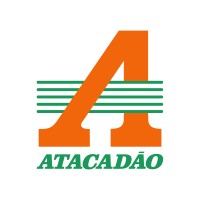
Atacadão
O Atacadão é uma empresa do Grupo Carrefour Brasil, com mais de 370 unidades de autosserviço e 36 atacados de entrega e centros de distribuição, que garantem o abastecimento de comerciantes, transformadores e consumidores finais, e está em contínua expansão. Com base nos pilares estratégicos de combate à fome e às desigualdades, diversidade e inclusão e proteção ao planeta & biodiversidade, o Atacadão tem o compromisso de oferecer produtos de qualidade a preços justos aos seus clientes. Com 62 anos de história, mais de 70 mil colaboradores e presença em mais de 220 municípios, também atua no e-commerce com o seu próprio canal de vendas online. Em 2023, a rede conquistou importantes prêmios para o setor, como o 1º lugar na categoria atacadista no Top of Mind, da Folha de S. Paulo, o primeiro lugar no ranking de varejo, supermercados e e-commerce do Prêmio BandNews e a 10ª colocação do ranking geral das 1000 Maiores Empresas do País, do Valor Econômico. O Atacadão também lidera o Ranking ABAAS (Associação Brasileira dos Atacadistas de Autosserviço) e da ABAD (Associação Brasileira de Atacadistas e Distribuidores de Produtos Industrializados). Racismo é crime. Denuncie. Disque 100 ou procure a Delegacia de Polícia Civil mais próxima ou o Ministério Público.






